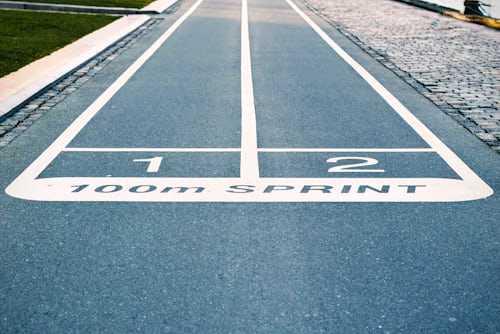9 psychological ways to help you lose weight
Curated from: independent.co.uk
Ideas, facts & insights covering these topics:
9 ideas
·3.83K reads
15
1
Explore the World's Best Ideas
Join today and uncover 100+ curated journeys from 50+ topics. Unlock access to our mobile app with extensive features.
Revisit what you know
Energy balance is the first key to achieving one's ideal body. It's a way of saying calories in versus calories out. Your body needs a certain amount of calories to maintain its current body weight.
Once you understand energy balance, you might feel less tempted to eat more than you really need.
176
915 reads
Steer clear of opaque food containers
Don't eat out of food containers, boxes, and bags that aren't clear.
Our brains are highly visual. We take visual cues as to how much food we’ve eaten to help us know when we should stop. When you can't see how much food you’ve had, you never get that visual feedback and you end up eating way too much.
157
762 reads
Ditch dieting
Dieting limits one's mind-set.
Once you're off your diet and have lost weight, you might revert back to eating poorly, not exercising and ultimately regain pounds. Instead, focus on your long-term eating habits.
162
230 reads
Trick your stomach
Choose vegetables such as carrots and celery over sugary treats when you're having a snack craving.
Not only do they have fewer calories; they are also fibrous and can make you feel full faster.
178
226 reads
Exercising can be fun
Finding an exercise that's fun matters most, because you'll be more likely to incorporate it into your weekly routine.
Working out with friends or in a group can be motivational, making exercise less of a chore and more of an enjoyable pastime after work or between errands.
151
249 reads
Understand what causes obesity
More cases of obesity are reportedly caused by lifestyle decisions rather than genetic factors.
Promoting the notion of genes as a cause for obesity may increase genetically deterministic beliefs and decrease motivation to engage in healthy lifestyle behaviors.
People who believe that obesity is caused by unhealthy habits are likely to become proactive and re-think their actions.
143
241 reads
Ask challenging questions
Consider tapping into your competitive side by turning weight loss into a challenge.
Can you lose this weight? Are you up to the challenge?
165
191 reads
Be kind to yourself
See yourself in a positive light. Envision your future self, six months to a year and consider how great you'll look and feel.
180
591 reads
Get more sleep
When we are sleep-deprived, high-fat and sugary foods seem much more attractive, probably because they give us a quick burst of energy.
To avoid temptation, adults should strive for at least seven hours of sleep every night.
167
430 reads
IDEAS CURATED BY
Sarah 's ideas are part of this journey:
Learn more about health with this collection
How to listen to your body's hunger and fullness cues
How to develop a positive relationship with food
How to trust yourself around food
Related collections
Similar ideas
1 idea
8 Effective Tips to Lose Fat in Your Face
healthline.com
3 ideas
Why Weight Loss Diets Fail
self.com
6 ideas
6 Simple Ways to Lose Belly Fat, Based on Science
healthline.com
Read & Learn
20x Faster
without
deepstash
with
deepstash
with
deepstash
Personalized microlearning
—
100+ Learning Journeys
—
Access to 200,000+ ideas
—
Access to the mobile app
—
Unlimited idea saving
—
—
Unlimited history
—
—
Unlimited listening to ideas
—
—
Downloading & offline access
—
—
Supercharge your mind with one idea per day
Enter your email and spend 1 minute every day to learn something new.
I agree to receive email updates




